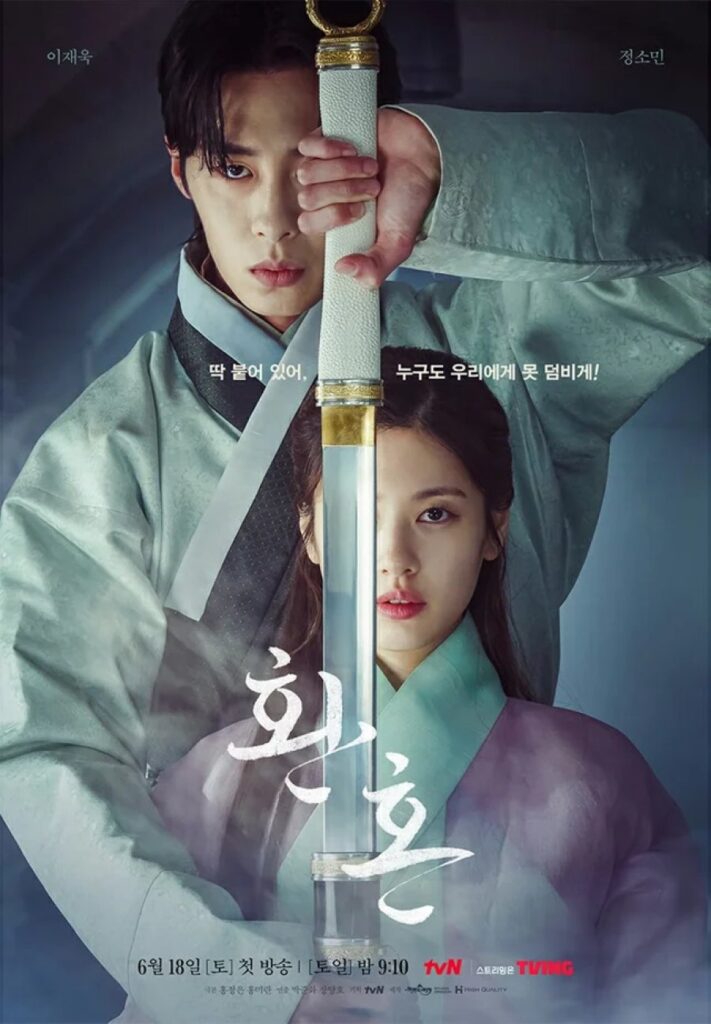Top 5 Books that Correspond to Popular K-dramas
Recently I’ve been in a bit of a reading slump; I haven’t had the energy to start a book and because of this, I’ve been watching a lot of shows. Whenever I’m in a slump, I find it really good to watch K-dramas, I think they’re very creative and interesting to watch – as well their slow-burn romances being some of my favourites. My recent newfound obsession with K-dramas got me thinking about books that have the same feel as some of my favourite, and perhaps well-known, K-dramas. If you haven’t watched any K-dramas, hopefully this might make you interested and maybe you could also check out the books mentioned if you haven’t already.
The Devil Judge and If We Were Villains by M.L. Rio
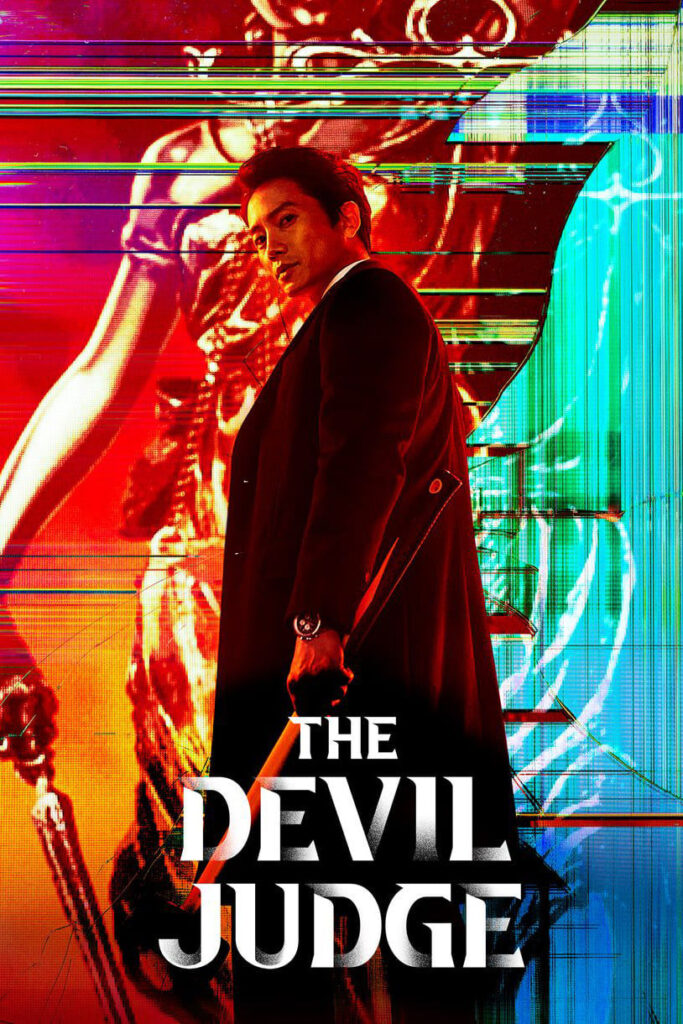

The Devil Judge is set in a ‘dystopian’ South Korea, wherein justice is served through a courtroom reality show. It follows the three judges as they discover mysteries behind the crimes on trial. On the other hand, If We Were Villains tells the story of Oliver Marks; ten years after he was imprisoned for murdering a classmate, the detective in charge of the case finally discovers the truth behind the crime.
The Devil Judge and If We Were Villains both happen to be two of my absolute favourite pieces of media and I would highly recommend checking them out, I guarantee you will not regret it! They feel very similar to me, for various reasons.
- Both feature crime at the forefront – Both stories exist in the present but flashback and investigate crimes that occurred years beforehand. While the theme of crime in If We Were Villains is majorly seen within the murder of Oliver’s classmate, The Devil Judge has various crimes that are featured within the episodes – as well as one that is continuously seen as a flashback throughout.
- Both have important male friendships between the two male leads that can be seen to be homoerotic or even romantic (and I do believe both are).
- Themes of mystery, crime, murder, and found family are really important in both works.
Business Proposal and Love, Theoretically by Ali Hazelwood
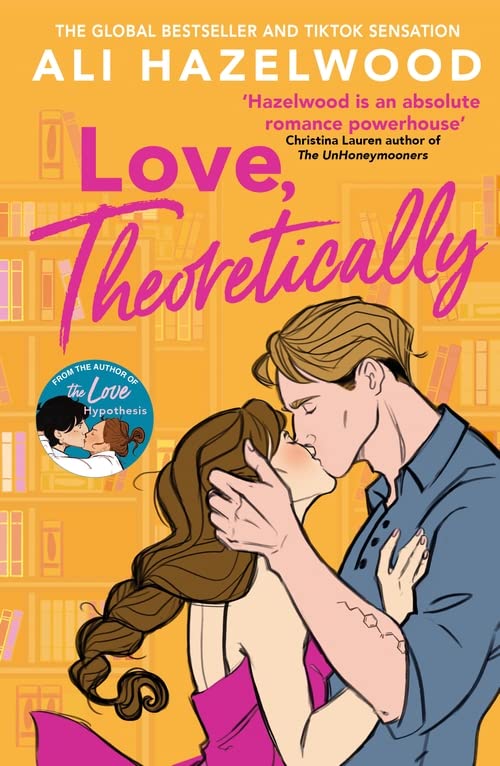
Business Proposal begins when Shin Hari agrees to go on a blind date in place of her best friend, however things don’t go to plan as Hari discovers her blind date is actually her boss. Love, Theoretically tells the story of Elsie Hannaway – an adjunct professor ‘fake-girlfriending’ on the side to pay the bills. When Elsie gets the opportunity to put an end to her struggles in the form of a dream job offer from MIT, the last thing she needs or expects is for her mortal enemy to be on the hiring committee.
I feel like the similarities between these two might be fairly obvious – and I absolutely love both of these purely because of the absolute joy that I get from them.
- Business Proposal and Love, Theoretically are both Rom-Coms.
- Both feature the fake dating trope – There is technically no fake-dating between the main leads in Love, Theoretically but the female lead is involved in being a ‘fake girlfriend’ at the beginning of the book.
- Enemies to lovers is the main trope between the main leads in both works.
- Both female leads are in the S.T.E.M field (Women in S.T.E.M!) and have strong female friendships that are really important to the characters themselves and to the storyline.
Move to Heaven and A List of Cages by Robin Roe
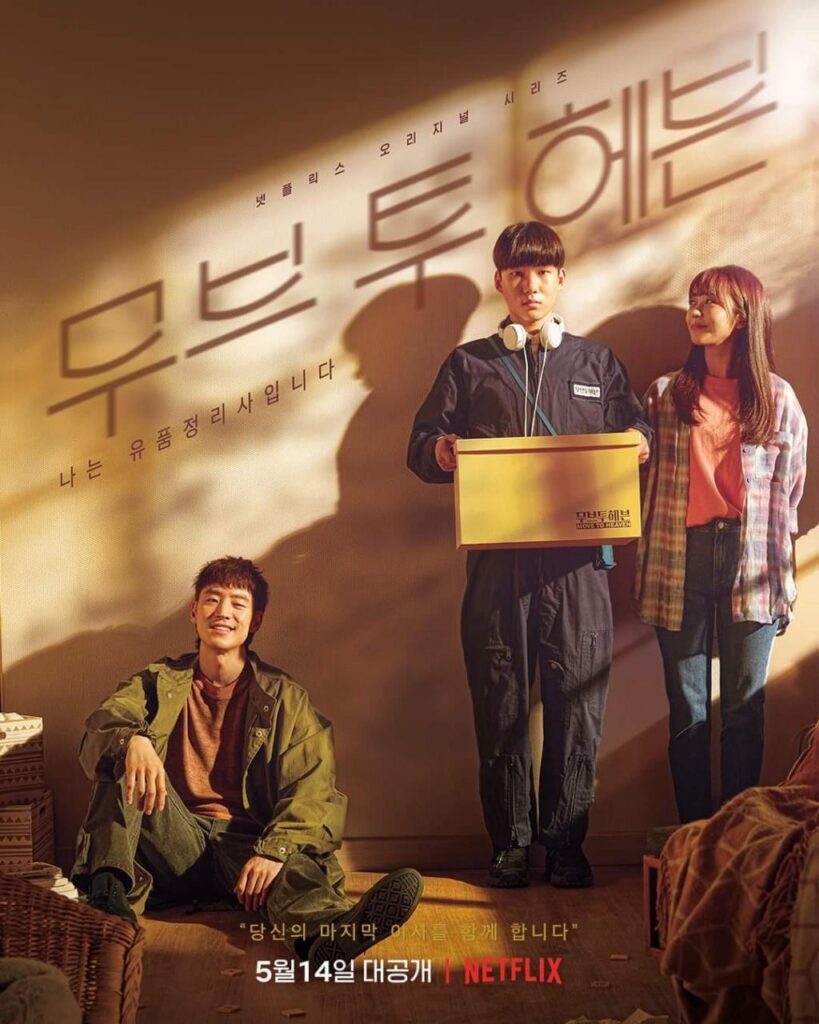
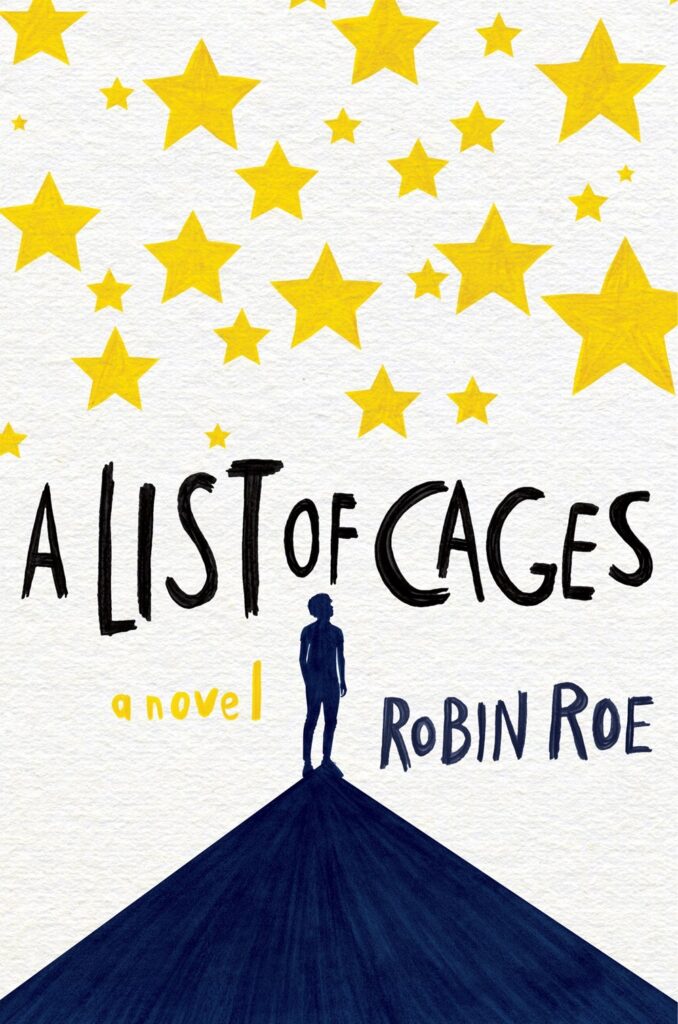
Move to Heaven revolves around 20 year-old Geu-ru who has recently lost his father. His estranged uncle moves in with him as his guardian and helps run the family ‘trauma cleaning’ business, as he deals with his own trauma from the past. In A List of Cages, as his senior year elective, Adam Blake becomes the aide to the school counsellor. Adam soon discovers that the ‘troubled freshman’ he is enlisted to track down is his foster brother Julian from five years ago. Despite the joyous reunion, Adam is determined to find out what secrets Julian is hiding.
You might not think that these two go together at first glance, however the more I think about it, the more I see the similarities. Both also give the same feel/ ‘vibe’ and this is evident throughout.
- Neurodivergent rep – Move to Heaven has a lead with Autism and A List of Cages has a lead with ADHD
- Both feature children/ young adults who are going through trauma – parental death and abuse respectively.
- Found Family is a main trope within both stories – Both works have the same conflicting heart-breaking and heart-warming feel to them; in each story, the main character has a guardian and friends/ family that are there for them through the trauma that they endure within the story.
Abyss and Cemetery Boys by Aiden Thomas
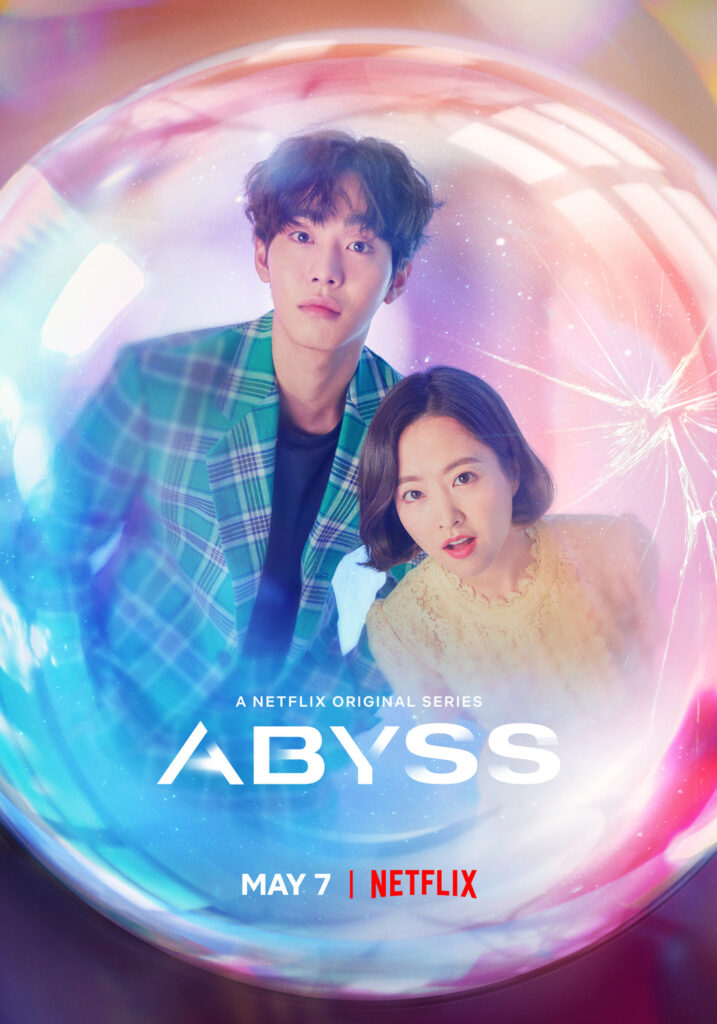
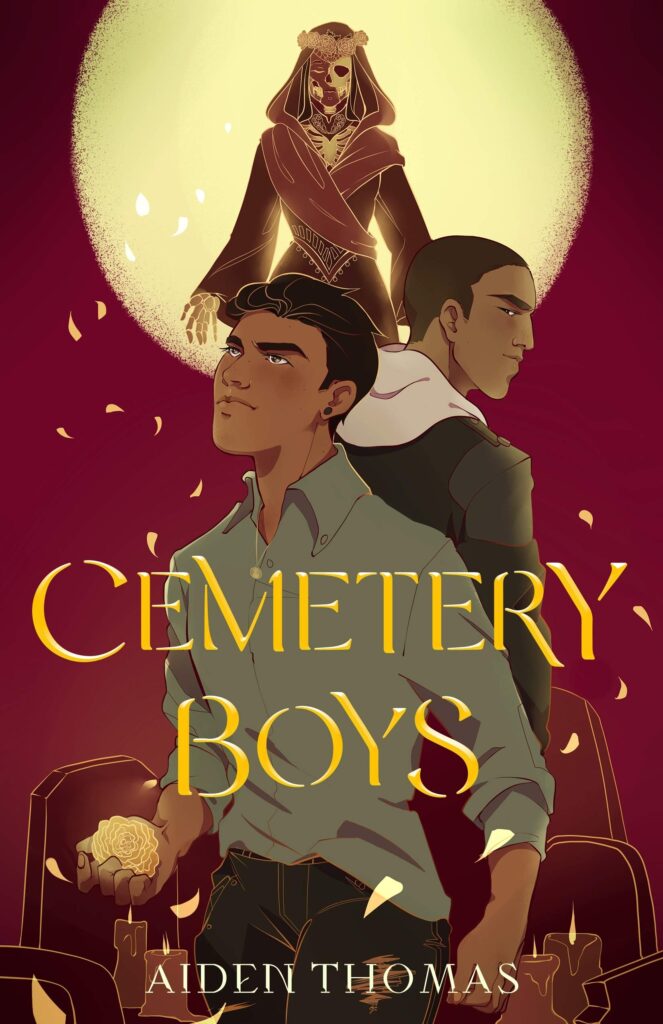
Abyss follows Cha Min as he dies and gets ‘re-born’ into a different body after he is given the gift of the ‘abyss’ – an orb that allows him to bring the deceased back to life. When Cha Min’s friend is murdered, he must figure out how to revive her and catch her killer. Cemetery Boys tells the story of Yadriel; determined to prove himself to his family, he attempts to summon the soul of his murdered cousin, Miguel. However, Yadriel ends up summoning the soul of his deceased classmate Julian. In order for Yadriel to achieve what he wants, he must agree to help Julian in his final days.
I love both of these so much, I feel like they each have such interesting ideas and storylines. The similarities between the two are quite explicit and I feel like if you like one, then you’d definitely enjoy the other.
- Death and the afterlife are main themes within both works – One features an orb that has the capacity to revive people from the dead, and the other has a community that is in tune with spirits and has the ability to summon souls and help them pass over.
- Both have romance, and a love story that intertwines with death.
- Magic plays a massive part in both works, as well as the ‘murder mystery’ element of both love interests having been killed at the beginning of the work.
Alchemy of Souls and Daughter of the Burning City by Amanda Foody
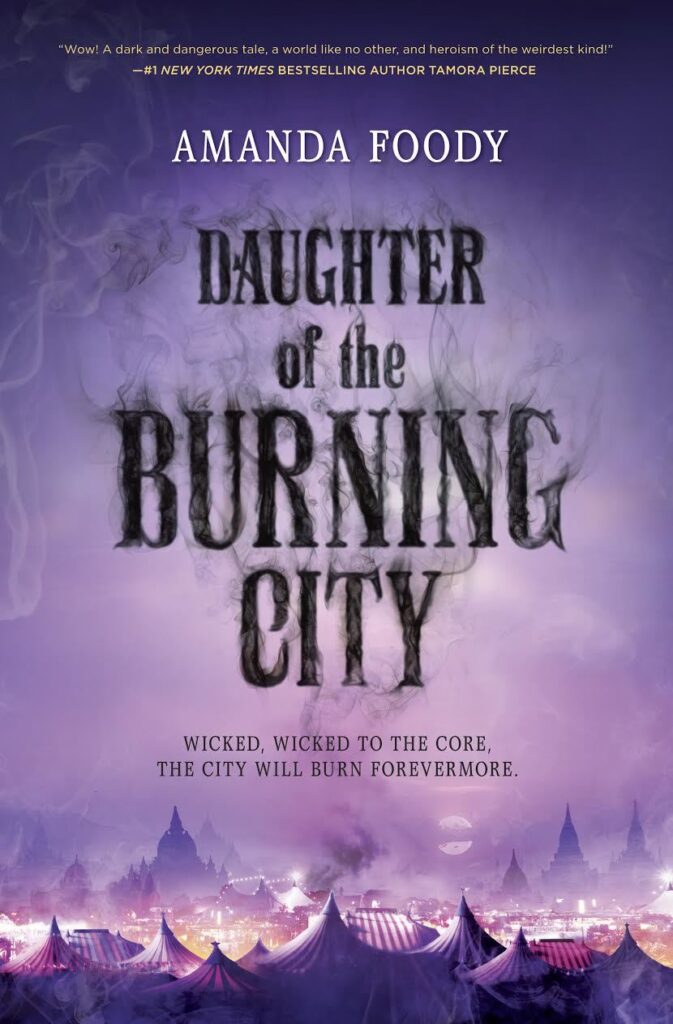
Alchemy of Souls tells the story of the young noble mage Jang-Uk as he discovers the elite assassin Nak-su; after having performed the forbidden spell of the ‘alchemy of souls’ and becoming trapped within the ‘weak’ body of the servant Mu-deok, she must become his teacher and help change his destiny. Daughter of the Burning City follows sixteen year-old Sorina who has the ability to create lifelike illusions that, despite their realism, are still false. As one by one, her ‘family’ of illusions are killed, Sorina must work to find the killer and protect her family.
Alchemy of Souls is one of my all-time favourite shows and I absolutely loved Daughter of the Burning City when I read it (even if that was about seven years ago). I do feel like they have a lot of similarities and would recommend both to any romance/ fantasy lovers out there.
- Magic and illusions are main ideas within both works – I feel like this one is obvious from the synopses.
- The romance element and male leads have similar energy – the leads begin as reluctant allies in both works, and the male leads both start off as ‘stand-offish’ and develop into showing their more caring side.
- Murder and mystery are at the forefront of both.
- Both are set in fictional worlds – One is a fantasised historical version of Korea and the other is a fantastical travelling city of performers.

